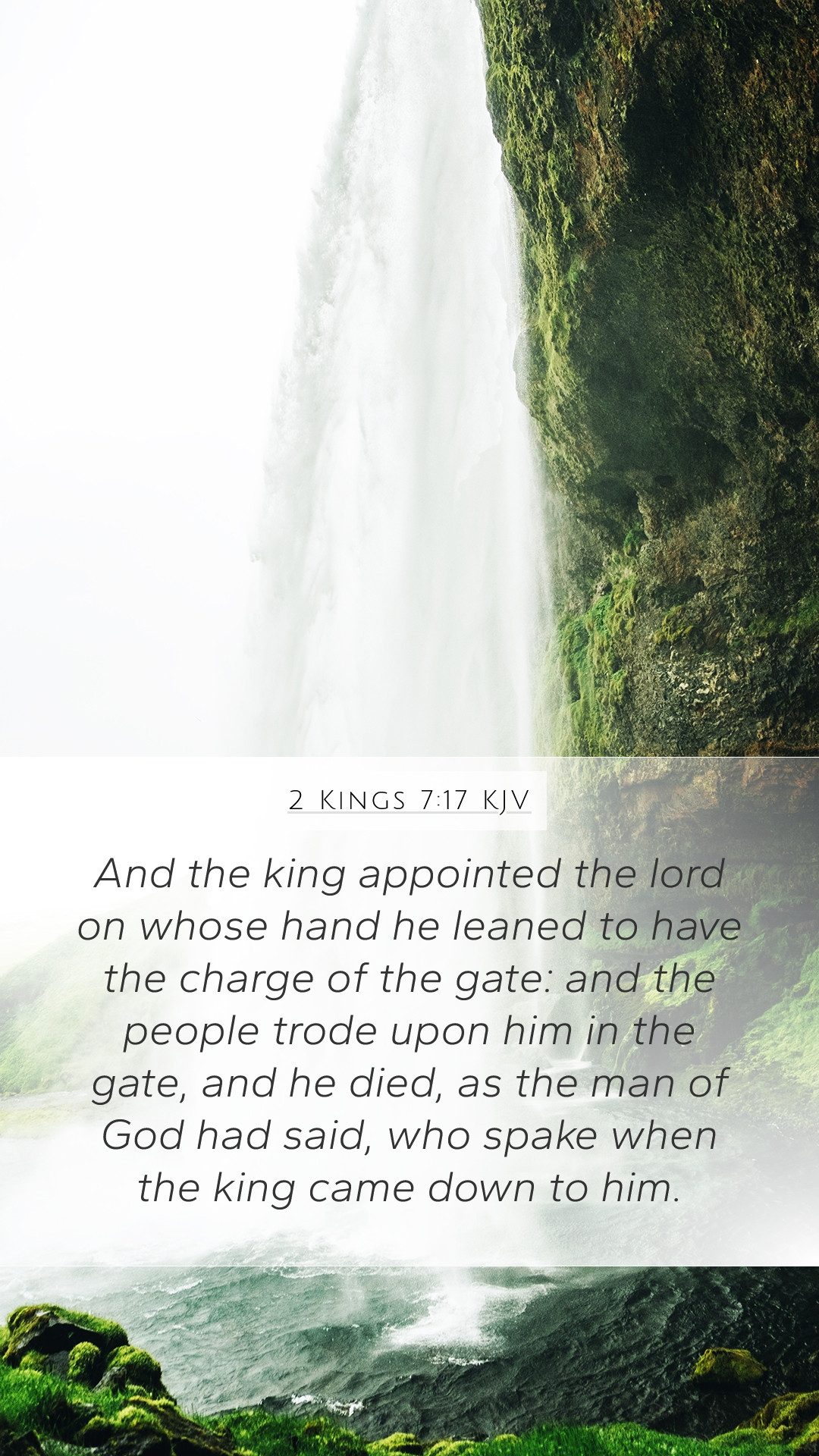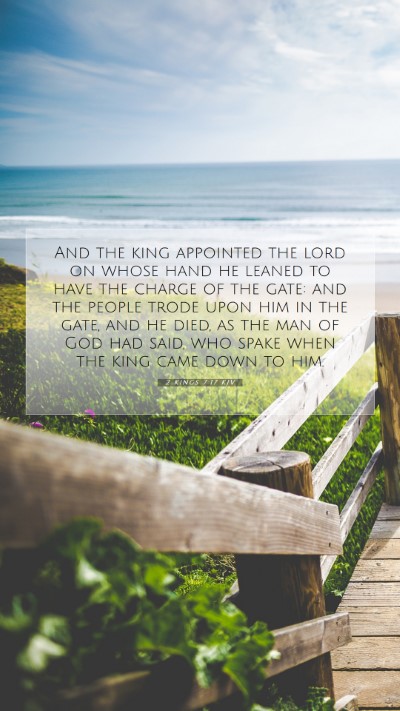Old Testament
Genesis Exodus Leviticus Numbers Deuteronomy Joshua Judges Ruth 1 Samuel 2 Samuel 1 Kings 2 Kings 1 Chronicles 2 Chronicles Ezra Nehemiah Esther Job Psalms Proverbs Ecclesiastes Song of Solomon Isaiah Jeremiah Lamentations Ezekiel Daniel Hosea Joel Amos Obadiah Jonah Micah Nahum Habakkuk Zephaniah Haggai Zechariah Malachi2 Kings 7:17 Meaning
What is the meaning of 2 Kings 7:17?
And the king appointed the lord on whose hand he leaned to have the charge of the gate: and the people trode upon him in the gate, and he died, as the man of God had said, who spake when the king came down to him.
2 Kings 7:17 Bible Verse Meaning
Understanding 2 Kings 7:17
In 2 Kings 7:17, we encounter a significant moment in the narrative of the siege of Samaria, encapsulating themes of divine providence, human leadership, and the dire consequences of false prophecies. This verse ultimately provides a poignant lesson for modern readers, grounding them in biblical truths and encouraging deeper Bible verse understanding through Bible verse commentary and in-depth Bible verse analysis.
Contextual Background
The context of 2 Kings 7 is critical for understanding the implications of this verse. The city of Samaria experiences a terrible famine due to a prolonged siege by the Arameans. Amidst this turmoil, the prophet Elisha delivers a message of hope: within 24 hours, the circumstances will dramatically change. This prophecy is met with skepticism from an officer of the king, who is subsequently warned of his fate (2 Kings 7:2), and the unfolding events showcase God's sovereignty in human affairs.
Verse Breakdown and Commentary
2 Kings 7:17 states:
"Now the king had appointed the captain on whose hand he leaned to have the charge of the gate: and the people trode upon him in the gate, and he died, as the man of God had said, who spake when the king came down to him."
Key Themes
- Divine Prophecy: The fulfillment of Elisha's words illustrates the reliability of God's promises and warnings as noted by Matthew Henry, who emphasizes that what God has decreed will surely come to pass.
- The Role of Leadership: The appointed captain’s fate serves as a cautionary tale about the consequences of disbelief and the responsibilities of leadership, correlating with Albert Barnes's reflections on accountability in positions of authority.
- People's Desperation: The chaotic scene where the people "trod upon him" symbolizes the desperation and irrational behavior stemming from extreme circumstances, as highlighted by Adam Clarke, illustrating the human condition in crises.
Theological Insights
The verse serves as a microcosm of the larger narrative, reiterating the theme that divine judgment can manifest in various forms, where the rejection of God's word leads to dire consequences. The captain's death signifies the peril of failing to heed divine warnings and the unpredictability of human situations when divorced from God's guidance.
Application for Believers
For contemporary readers, this verse encourages a deeper understanding of Scripture, urging them to consider how they respond to God's messages and the potential implications of their leadership and faith in trials. Engaging with Bible study resources or Bible study group discussions about this passage can reveal practical applications for daily life, pointing to themes of trust in providence amidst adversity.
Cross References
- 1 Kings 22:17 - Another prophetic warning leading to consequences.
- 2 Kings 6:32-33 - The context of the siege and prophetic conflict.
- Isaiah 30:10 - A reflection on the rejection of prophetical messages.


